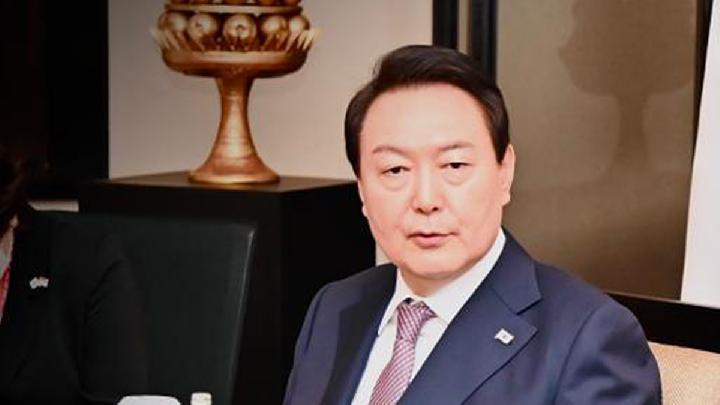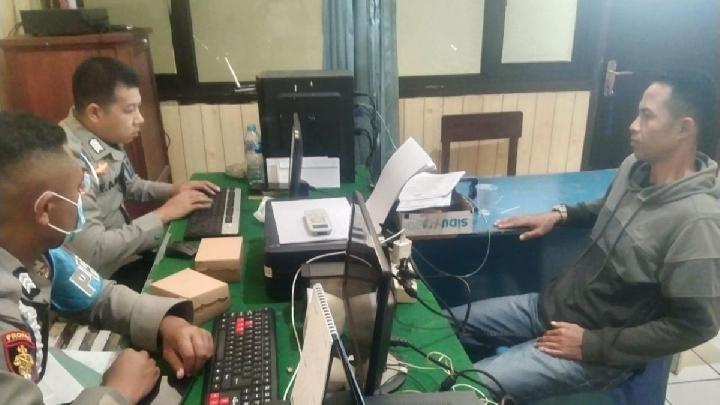
TEMPO.CO, Jakarta - U.S. President Donald Trump announced import tariff policy on Wednesday, April 2, 2025 local time. He imposed a minimum of 10 percent tariff on all products entering the US from all countries.
In addition, Trump also applied reciprocal tariffs that are higher in response to some trading partner countries, including Indonesia. The tariffs vary, for example, Indonesia at a rate of 32 percent, China at 34 percent, and the European Union at 20 percent.
The Institute for Development of Economics and Finance (Indef) revealed that Indonesia's annual average market share of exports to the U.S. is 10.3 percent. This market share is the second largest after Indonesia's exports to China.
The implementation of additional tariffs on products originating from Indonesia will have a direct and significant impact on the decrease of Indonesia's exports to the US. Leading exporters of main commodities such as textiles, footwear, electronics, furniture, and agricultural products will incur high costs.
"The impact will result in production slowdown and job losses," said Eisha in a written statement on Thursday, April 3, 2025.
Therefore, Indef suggested several steps that the government needs to take to deal with Trump's tariff policy. Eisha argued that Indonesia needs to engage in trade negotiations with the U.S. as soon as possible.
Negotiating as soon as possible is necessary to minimize or reduce the impact of tariffs on Indonesian export products to the US.
"Diplomatic negotiation strength becomes crucial in mitigating the impact of the trade war with the U.S.," she said.
Furthermore, Eisha mentioned that the government needs to optimize bilateral and multilateral trade agreements, as well as initiate cooperation agreements with non-traditional countries.
This is to drive the export of affected products, namely textiles, footwear, electronics, furniture, and agricultural and plantation products.
"So that exporters and affected industries can redirect their export markets," she said.
Moreover, the government also needs to provide financial incentives, subsidies, and tax relief policies. These policies are considered to help businesses cope with the increased costs and reduced demand due to the impact of U.S. tariffs and trade war.
In addition, Eisha continued, investment in technological advancement and innovation, as well as the enhancement of workforce skills, is also needed to increase Indonesia's product competitiveness in the global market. This is an effort in the long run.
The White House previously stated that President Trump introduced a reciprocal tariff policy to strengthen the U.S. economy and protect domestic workers.
Several countries, including Indonesia, were seen as unfairly benefiting from trade with the U.S., prompting the implementation of new import tariffs.
According to the White House website, these tariffs will be introduced in two phases. A 10 percent tariff on all countries will take effect on Saturday, April 5, 2025, at 00:01 EDT (11:01 AM WIB). Following this, additional tariffs for specific countries, including Indonesia, will be enforced starting Wednesday, April 9, 2025, at 11:01 AM WIB.
Sultan Abdurrahman contributed to the writing of this article.
Editor's Choice: KSP Says Indonesia Anticipated US Reciprocal Tariffs in Advance
Click here to get the latest news updates from Tempo on Google News
Rupiah Weakens to Rp16,772 per US Dollar: What's Driving the Decline?
11 menit lalu

The exchange rate of the rupiah weakened by 59 points or 0.36 percent against the US dollar, which is Rp 16,772 per US dollar on Thursday, April 3, 2025.
KSP Says Indonesia Anticipated US Reciprocal Tariffs in Advance
3 jam lalu

The Presidential Staff Office (KSP) stated that the government has anticipated early on the reciprocal tariff policy from the United States to Indonesia
Economists Warn of Layoff Risks in Indonesia Amid Trump's Trade Tariffs
4 jam lalu

Economists warn that Trump's tariff policies will not only affect trade but also have an impact on millions of domestic workers.
Trump's Tariff Policy: Indonesia and Malaysia Seek Unified ASEAN Response
4 jam lalu

10 ASEAN countries are affected by the new import tariff policy set by the United States President Donald Trump.
Today's Top 3 News: Trump Announces Reciprocal Tariffs on 60 Countries, Indonesia Hit with 32% Rate
13 jam lalu

Here is the list of the top 3 news on Tempo English today.
Celios Warns Trump's Tariff Policy on Indonesia Could Lead to Economic Recession
13 jam lalu

Celios explains the significant impact of reciprocal tariff hike by US President Donald Trump on the Indonesian economy. What are the impacts?
Why Trump Imposed Reciprocal Tariffs and How They Will Affect Indonesian Exports
14 jam lalu

Economists believe that Trump is desperate about the fiscal condition of America, hence imposing high tariffs.
Indonesian Entrepreneurs Urge Gov't to Accelerate Trade Deals Amid Trump's Tariff Hike
15 jam lalu

Indonesia ranks eighth on the list of countries affected by Trump's tariff increase, at 32 percent.
When Will Trump's Import Tariffs Take Effect in Indonesia?
16 jam lalu

The White House announced that the implementation of Trump's new tariffs will be divided into two stages.
Indonesian Govt Delays Press Conference on Trump's Tariffs, Economist Urges Strategic Anticipation
19 jam lalu

The government has not issued an official statement regarding the import tariffs set by Trump despite several other country leaders having reacted.










































